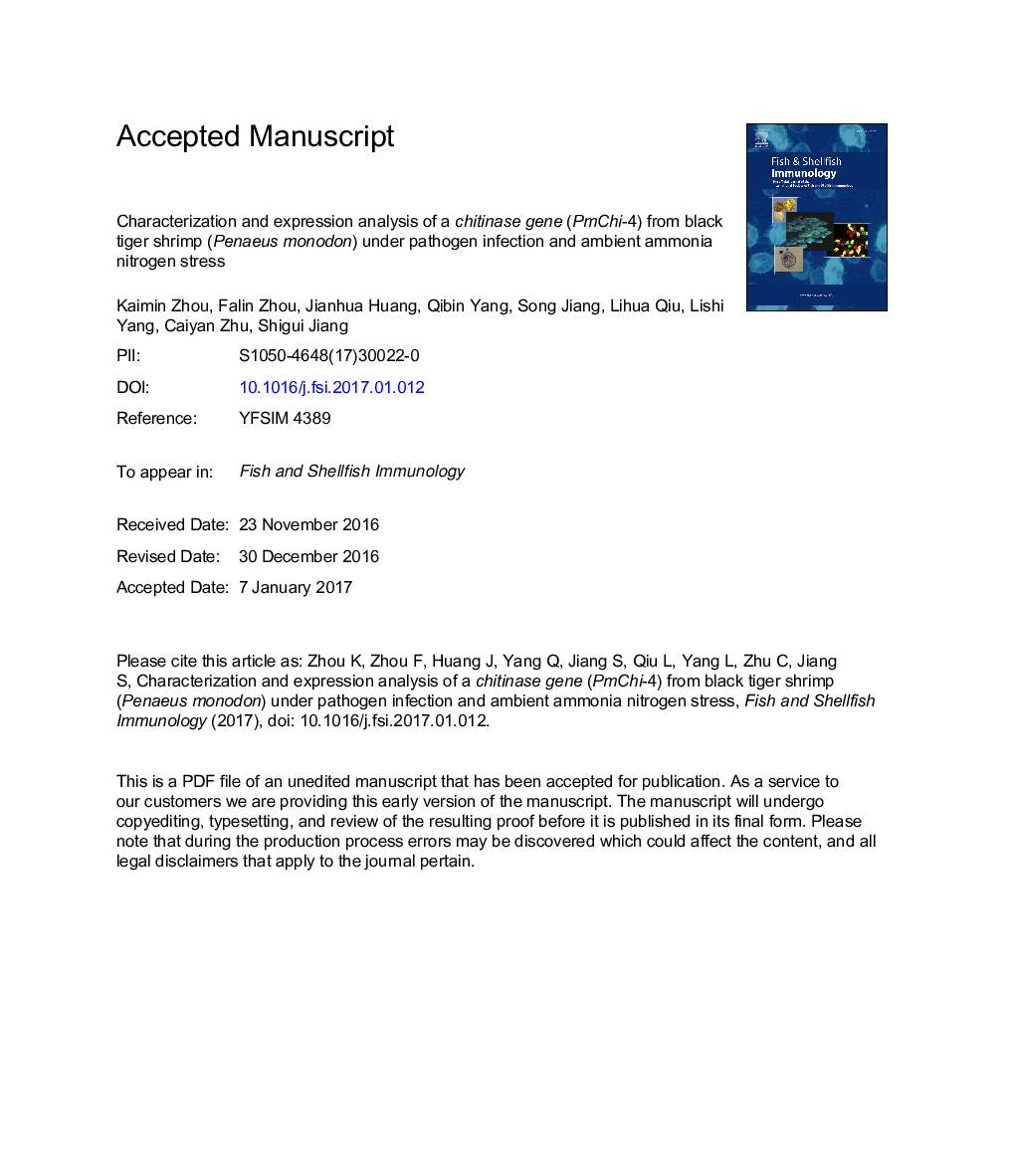| Article ID | Journal | Published Year | Pages | File Type |
|---|---|---|---|---|
| 5540548 | Fish & Shellfish Immunology | 2017 | 30 Pages |
Abstract
Chitinase is a multi-gene family, which play important physiological roles in crustaceans, involved in several biological processes, including digestion, molting and defense against viruses. In the present study, a chitinase-4 gene (PmChi-4) was cloned from Penaeus monodon by rapid amplification of cDNA ends (RACE). The full length of PmChi-4 cDNA was 2178 bp, including an 1815 bp open reading frame (ORF) which encoded 604 amino acid residues. The predicted PmChi-4 protein was 67.7 kDa and shared 61%-88% identity with the type of Chi-4s from other crustaceans. Quantitative real-time (qRT-PCR) analysis indicated that PmChi-4 was expressed ubiquitously with the high expression level in hepatopancreas. PmChi-4 was expressed throughout the whole larvae stages, and the highest level of PmChi-4 transcripts was detected at Mysis3 stage, which indicated that PmChi-4 may be involved in larval metamorphosis. In order to know whether PmChi-4 was related to the immune response of shrimp, Streptococcus agalactiae and Vibrio harveyi were chosen to challenge the shrimp, PmChi-4 transcripts were significantly increased and reached to the maximum at 6 h in hepatopancreas and at 12 h in gill, respectively. The results suggested that PmChi-4 participated in the immune defenses to pathogen infection. Besides, the ammonia nitrogen stress treatment was also carried out, PmChi-4 transcripts were significantly decreased in hepatopancreas and gill and the result showed that PmChi-4 may be involved in ammonia nitrogen stress in P. monodon. Overall, our present study lay a foundation for further research into the biological function and regulation of chitinase in P. monodon.
Related Topics
Life Sciences
Agricultural and Biological Sciences
Aquatic Science
Authors
Kaimin Zhou, Falin Zhou, Jianhua Huang, Qibin Yang, Song Jiang, Lihua Qiu, Lishi Yang, Caiyan Zhu, Shigui Jiang,
